Can I work on Easter and after how many days can I do it?
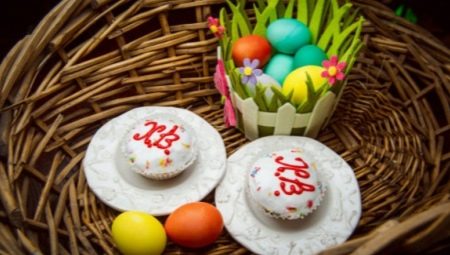
Easter is considered the main celebration of the Orthodox, and therefore they prepare for it in advance. Including informational. There are many contradictions that are not directly related to religion and church traditions, but circulate in conversations, in the communication of people regarding the celebration of the holiday. For example, is it possible to go to the bathhouse on Easter, do the cleaning and, of course, is it possible to work.
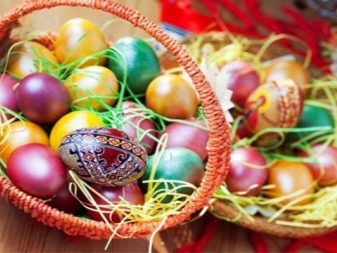
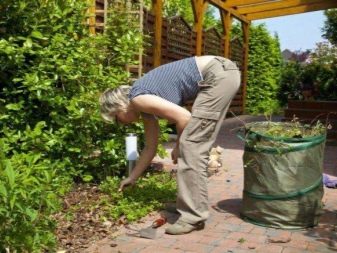
Why can't you work?
This question is both voluminous and short. You can and cannot - that's how they say about working on Easter. The fact is that the clergy do not pronounce strict prohibitions: they will never condemn a person who works, if this labor cannot be transferred, entrusted, if a person is planned to carry out his service. Of course, the shift doctor cannot refuse patients even for the sake of the most important Christian holiday. How can not work the one who simply has no one to replace.
But if this is a day off, then work on it is undesirable, because it distracts from thoughts about Christ, from the very essence of the holiday, which requires merging with its main theme. And the festive divine service suggests that tomorrow the believer has a bright day glorifying the Resurrection of Christ. This is natural, normal. And such recommendations - not to work - are connected not so much with a ban as with taking care of a person who will find it difficult to combine so many things at once. Focusing on prayer, good thoughts, and awareness of the way of Jesus does not imply fuss and such a serious distraction as work. A holiday is a holiday, and in Christianity too.
There is no need to reproach yourself if something cannot be postponed: it is better not to let people down and work than to find problems and destroy some plan.Moreover, after the resurrection there will be a whole Easter week, and it also involves a celebration.
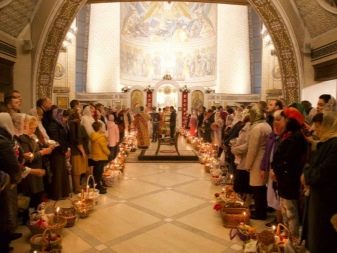

There is an opinion that you cannot work before lunch, but you can work in the afternoon. There really is such a relaxation, so to speak. But do not abuse it: if there are things that can be postponed, it is better to do them another time. It is not so much sinful as vain. Of course, you cannot postpone the work on the farm - there cannot be left unfed cattle, and so on. But if there are things that are completely resolved on another day, you should not plan them for Easter: this will add chaos to a bright day that is completely out of harmony with it.
Of course, after the Easter table, a mountain of unwashed dishes will gather, and you need to clean up after the guests. It's perfectly okay for the hosts to attend to this evening. But the first half of the day should be devoted to the celebration, family gatherings, conversations, in a word, the moments typical of Easter. Without unnecessary fuss and desire to quickly put things in order.
The issue of work often concerns some kind of gardening and dacha activities: is it possible during Easter to do something on the site, to work physically. It is clear that spring is hotter, and every weekend counts. And if such a day is really important, if it allows you to do something that is difficult to postpone, you can use it. Only still in the afternoon.


When can you do work after the holiday?
The most important thing that you definitely cannot do on Easter is to be sad, go gloomy and be angry. This is a sinful thing, and it is simply wrong according to universal human concepts. The holiday is bright, touching and tunes in to unity with the family, with loved ones, with other people glorifying God.
What else is important to know about working on post-holiday days:
- Easter is not only one main Sunday, it is a long period that lasts 40 days. And the first week among these 40 days is perhaps the most important. She is called Light. Until Fomin himself on Sunday, Easter services are held in the church. You can work on these days, but you also need to glorify the Lord - go to visit and receive guests, visit the suffering and help them, go to church. Most people work, go to work, but do not forget about the importance of Bright Week. They say that at this time you need to behave like a true believer: to be especially attentive to people, not to be angry, not to judge, to be generous.
- Calculating on what day you can really start working is not the most rewarding task. The Easter festival lasts 40 days, the first week is especially important, but in the general sense there is no place for mathematics. People are likely to go to work on Monday, and that's okay. But if it is possible, at least in the evening hours, not to take on special household chores, it is better to do so. If there is an opportunity to attend a service, you should prefer it to some non-urgent matters. On the second day, it happens, they celebrate with those who could not be together on Sunday, and this is normal.
- You can also work on the site the next day. But from the state of a holiday on weekdays, especially such a holiday, it is also worth getting out correctly. Do not start a noisy life right away on Monday, with a lot of idle talk, spending and fuss. It is better to spend the first week of Easter at home, next to loved ones, in cozy conversations and not the most noisy household chores. You can devote your evenings to needlework - the mood will have.
- There are people who are used to scheduling the week before Easter and after, and that's okay. And in such cases, the so-called timing is appropriate. Because planning definitely avoids the hassle. For example, on the first day of Bright Week, you can clean up the house a little after guests - usually a lot of effort is not required, because the house is "general" for Easter. On Tuesday, you can visit the dacha if, for example, a weekend visit was canceled in honor of a holiday.On the third day after Easter, on Wednesday, you can do something that will help those in need: clean up an elderly person's house, go to someone's store, in a word, with a real deed to help those who need it.

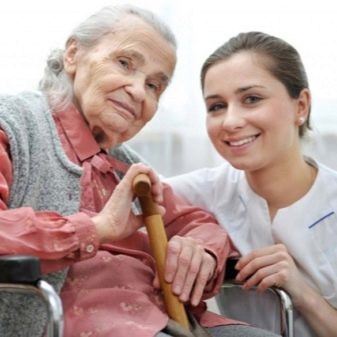
At home, in an apartment where there is no farm, and the footage is often not so huge, it is unlikely that a huge amount of work will be collected. But the one that has accumulated can be distributed on an increasing basis: on Monday - quite a bit, on the last day - much more, for example.
If you have prepared well for the holiday, if the house is cleaned and shines, if the celebration itself turned out to be successful and joyful, there will be this light state inside, which will help to avoid unnecessary fuss. It will naturally decide which things should not be postponed, and what to do after the Bright Week, etc.

Work on the eve of Easter
The pre-Easter week is very important: in it there is a place for hassle and humility. We'll have to do everything with the preparation, and not let Good Friday and Saturday become hectic days. Therefore, even a few weeks before Easter, you need to draw up a plan for the next month and abandon everything that can take too much time and energy just in the pre-Easter week. And on Bright Week too.
It is better to immediately decide what each day will be filled with, the main week for Christians.
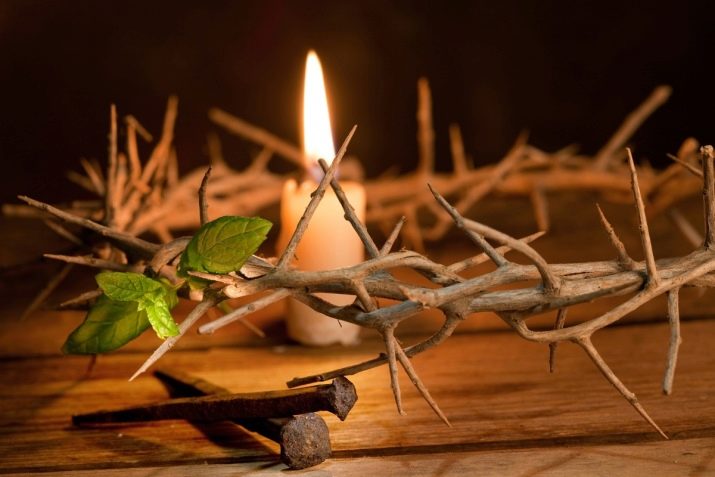
Examples of such planning:
- Monday. From that day on, you can start completely cleaning your home. If there is a farm, clean it in the barn. If something is somewhere unstuck (wallpaper), smeared, it's time to fix it.
- Tuesday. Those who fast are allowed only raw food. Therefore, it is better not to plan special cases where a lot of physical activity is required. But you can, for example, purposefully remove one of the rooms. Better to start with the kitchen.
- Wednesday. In the evening in the church, believers can confess. Fasting people eat only raw food without oil. You can do some simple work.
- Thursday. This is Maundy Thursday, and on this day, believers try to visit the bathhouse. It is also considered a good tradition to wash before dawn. People do not forget that the purity of thoughts and the purity of the body do not argue, but harmonize. You can do a general cleaning, wash windows, floors, etc. And in the evening it would be nice to have time to cook Easter cakes and paint eggs.
- Friday. This is the day of the judgment and crucifixion of Jesus. You should not plan big worries on this day, you should not attend events (non-church), thoughts should be about Christ, you need to mentally walk his martyr's path with him.
- Saturday. The day should be calm and not very hard, because the night service is ahead. As a rule, a lot of things are prepared for the festive table on this day. The main thing is that the preparations do not overshadow thoughts about the importance of the upcoming holiday, prayer. And so that the preparations do not become so difficult that there is no longer any strength left for service.

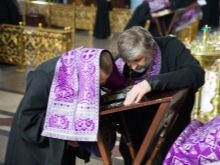

Well, Sunday is a day of pure joy, happiness and even jubilation. And everything that distracts will not be able to fully show with what light and grace the day when Christ was resurrected is filled. Therefore, planning is just a tribute to the holiday and helping oneself.








